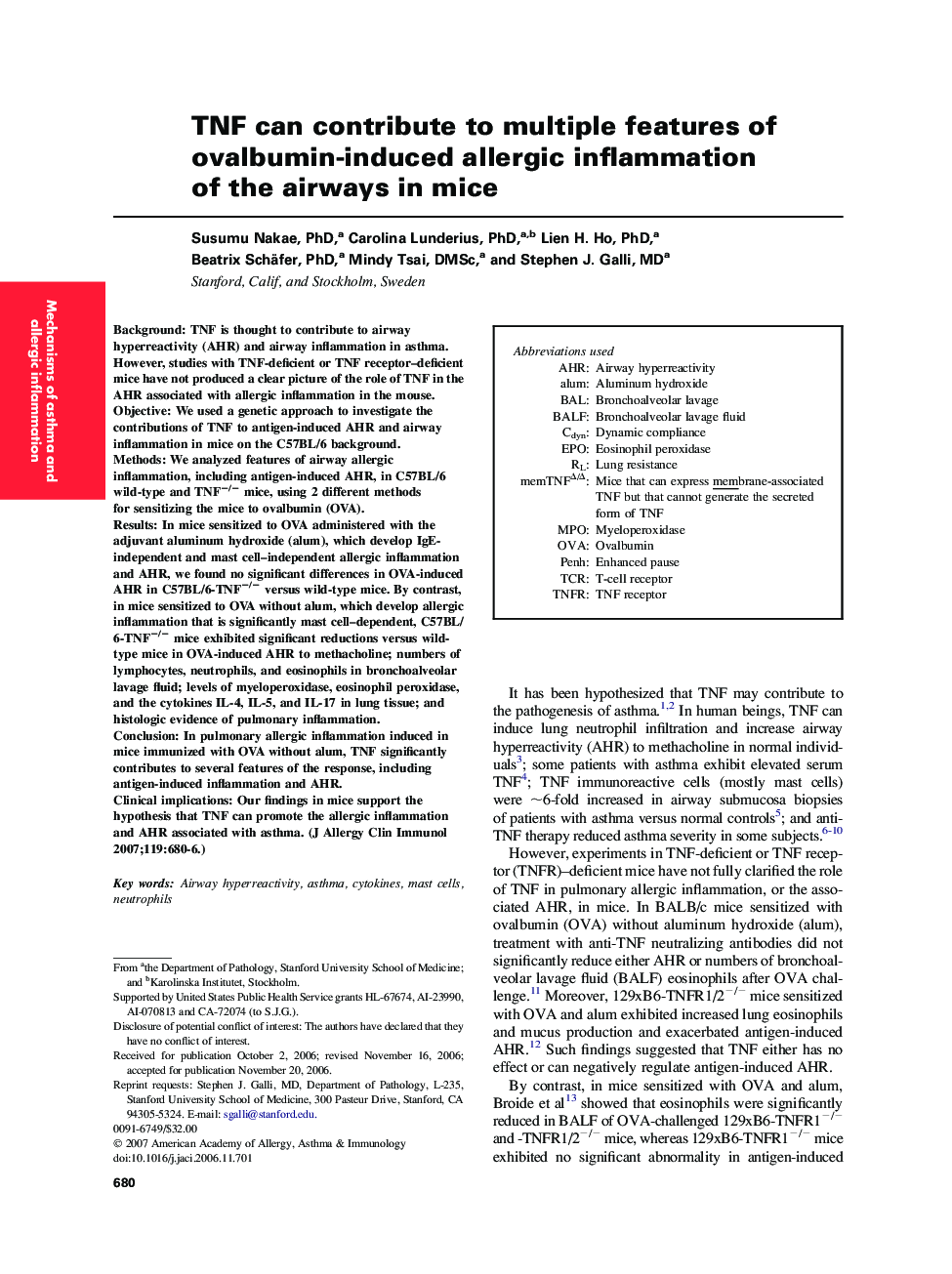| Article ID | Journal | Published Year | Pages | File Type |
|---|---|---|---|---|
| 3203417 | Journal of Allergy and Clinical Immunology | 2007 | 7 Pages |
BackgroundTNF is thought to contribute to airway hyperreactivity (AHR) and airway inflammation in asthma. However, studies with TNF-deficient or TNF receptor–deficient mice have not produced a clear picture of the role of TNF in the AHR associated with allergic inflammation in the mouse.ObjectiveWe used a genetic approach to investigate the contributions of TNF to antigen-induced AHR and airway inflammation in mice on the C57BL/6 background.MethodsWe analyzed features of airway allergic inflammation, including antigen-induced AHR, in C57BL/6 wild-type and TNF−/− mice, using 2 different methods for sensitizing the mice to ovalbumin (OVA).ResultsIn mice sensitized to OVA administered with the adjuvant aluminum hydroxide (alum), which develop IgE-independent and mast cell–independent allergic inflammation and AHR, we found no significant differences in OVA-induced AHR in C57BL/6-TNF−/− versus wild-type mice. By contrast, in mice sensitized to OVA without alum, which develop allergic inflammation that is significantly mast cell–dependent, C57BL/6-TNF−/− mice exhibited significant reductions versus wild-type mice in OVA-induced AHR to methacholine; numbers of lymphocytes, neutrophils, and eosinophils in bronchoalveolar lavage fluid; levels of myeloperoxidase, eosinophil peroxidase, and the cytokines IL-4, IL-5, and IL-17 in lung tissue; and histologic evidence of pulmonary inflammation.ConclusionIn pulmonary allergic inflammation induced in mice immunized with OVA without alum, TNF significantly contributes to several features of the response, including antigen-induced inflammation and AHR.Clinical implicationsOur findings in mice support the hypothesis that TNF can promote the allergic inflammation and AHR associated with asthma.
